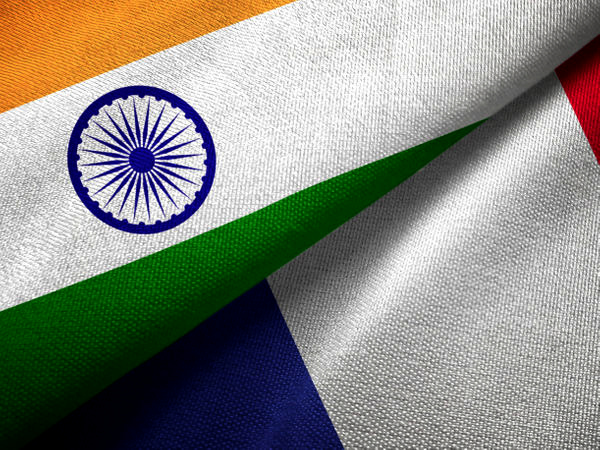India and France on Wednesday sought concerted action against terror groups such as Lashkar-e-Taiba (LeT), Jaish-e-Mohammed (JeM), Hizbul Mujahideen and al-Qaeda, including bringing the perpetrators of terror attacks to justice speedily.
In an apparent reference to Pakistan, a joint statement issued after a meeting in Paris of the India-France joint working group on counterterrorism said the two sides condemned all forms of terror activities, including cross-border terrorism.
The two countries also “stressed the need for all countries to ensure that territories that are under their control cannot be used to plan [and] launch terrorist attacks against any other country, shelter or train terrorist fighters”.
France has consistently backed India’s efforts at multilateral forums such as the UN Security Council and the Financial Action Task Force (FATF) to counter the activities of Pakistan-based terror groups and individuals. It also played a key role in the sanctioning of JeM founder Masood Azhar by the Security Council.
The joint statement described counterterrorism cooperation as a cornerstone of the India-France strategic partnership, especially in the Indo-Pacific region.
The joint statement also noted the joint working group’s meeting was held in a month that marks the 13th anniversary of the November 2008 attacks in Mumbai and the 6th anniversary of the November 2015 attacks in Paris, and allowed the two sides to express solidarity with victims of both terror attacks and to “share their resolve to stand together in the common fight against global terrorism”.
The Indian and French delegations exchanged views on threats posed by UN-sanctioned terror entities and individuals and “emphasised the need for taking concerted action against all terrorist networks including al-Qaeda and ISIS/Daesh, as well as Lashkar e-Taiba, Jaish-e-Mohammed and Hizbul Mujahideen”.
This action should include “making sure that perpetrators of terrorist attacks are systematically and expeditiously brought to justice”, the joint statement said.
The two sides also exchanged views on banning terrorist individuals and entities and shared information on their priorities for pursuing sanctions and designations against terrorists.
The delegations also shared their assessments of terrorist threats in their respective territories and regional environment, and underlined the need to ensure Afghanistan’s territory “does not become a source of radicalisation and terrorism, regionally or globally, and is never again used to threaten or attack any country or to shelter, recruit or train terrorists, or to plan or finance terrorist attacks in accordance with the UNSC Resolution 2593”.
The two sides also discussed various areas of cooperation in counterterrorism and countering illegal narcotic drugs and arms smuggling, and decided to continue sharing information to curb radicalisation, violent extremism, the financing of terrorism, and misuse of the internet for terrorism, and to act against internationally designated entities and individuals.
They also discussed counterterror cooperation at multilateral forums, including building on India’s non-permanent membership of the UN Security Council for 2021-22, and the FATF.
They also agreed to coordinate for the preparations of the third edition of the “No Money for Terror” international conference to be hosted by India.
The Indian side was led by Mahaveer Singhvi, joint secretary (counterterrorism) in the external affairs ministry, while Philippe Bertoux, director for strategic affairs, security and disarmament in the French foreign ministry, led the French delegation.
Source: HT
You may also like
-
IAF Aircraft Set Course For Exercise Eastern Bridge VII At Oman
-
India-us Working Together In Areas Like Critical Minerals, Supply Chains And Advanced Technologies: Shri Piyush Goyal
-
Defence Secretary to co-chair 5th India-Philippines Joint Defence Cooperation Committee meeting in Manila
-
2nd India-Japan Finance Dialogue held in Tokyo on 6th September, 2024
-
Prime Minister, Shri Narendra Modi welcomes Crown Prince of Abu Dhabi
